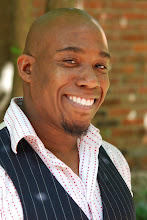Mezzo-soprano Tara Erraught was recently slammed by no less than five British critics for not being THEIR ideal size or physique for the role of Octavian in Strauss’ Der Rosenkavalier. There’s been quite a bit of backlash from singers, other critics and the general public regarding the remarks of these gentlemen including UK’s The Guardian, NPR Classical, as well as international mezzo-sopranos Jennifer Rivera and Alice Coote. What has been most fascinating is not that weight is NOT an issue in opera, but that critics are responding to an artist’s shape before they say anything about the voice which is what opera is all about! In the age of Hollywood and HD, opera singers feel pressure to sound great and look great. It’s not uncommon for artists to lose out on jobs because they are deemed too “zaftig,” “round”, “unattractive,” or just plain-old “fat.” But somehow we, in the industry, are moving away from the thing that drew us to it in the first place; the voice. Yes, we want “believability,” but I am certain that most opera goers want to hear an extraordinary instrument that can do all that is vocally required.
Before my return to singing, I went to gym sometimes twice a day at least four days a week. I was in extraordinary shape. When I got back into singing, I fully believed that I needed to be in top shape in order to compete. It did help with landing the role of Jake in “Porgy and Bess.” But a mere four years later and I know that I am a little “rounder” in certain places. But in addition to that physical change, there has also been a vocal one. I have more “strength” when it comes to supporting long phrases, I am able to sing for longer periods of time and I have much more confidence in my artistry now with the additional lbs. What is funny about being an opera singer, is that while your looks may or may not get you the audition or the role, the operatic voice is spiritual and transcends the “trends.” I am certainly working more now because I am singing SO much better and am focusing on the voice and all it demands (the interior) and not worrying as much about the bod (the exterior.) (I feel like this could work better for all of us in life as well.)
Opera seems to be in a huge dilemma. Companies are having trouble figuring out their relevance in a world that values youth and beauty. There are singers who have the “whole package” of being extremely talented, young and easy on the eyes, but there are only so many roles that those people can sing. What about the roles that require more voice, more drama, more granduer and finally more “physical presence”? Isn’t there a place for them in opera? Very few mezzos can sing both Octavian and Cenerentola, but Ms. Erraught can. Shouldn’t we be excited by this as “lovers” of opera? (I put lovers in quotes because it seems like fewer and fewer of those critical voices actually LOVE opera.) It isn’t coincidence that many of the world’s greatest artists of the past (and many of today) are not known for their bodies, but the voices that come out of them.
In my humble opinion, opera will not survive by beating up its own; by trying to mirror movies, tv and magazines in looks, or by diminishing the miraculous thing it is to be able to sing an entire 3 hour (or more) long opera over an orchestra in the original language beautifully. So I say, if opera wants to become “mainstream,” then represent the mainstream. In this age of individuality, why not have our art-form celebrate that very fact. We have a veritable boatload of composers of every language, period and style. Why wouldn’t we have opera singers that represent such diversity? Right now, society is recognizing that all shapes and sizes are sexy and that diversity and inclusion make us all more successful. Hopefully the opera world will take notice of this and move in this direction.
Finally, if one is going to the opera to see “believable” then you’re in for a big surprise because in opera they sing everything (and we love it.) In the real world, if people started singing everything, we’d walk across the street. (I should know as I have been the singer and seen people move and been the mover who saw the "crazy" singer.) Ms. Erraught is still in her 20s and is a fine talent. I am certain this experience has toughened her skin. But I hope that because of the words of those five critics, Ms. Erraught gains more fame and fans. As they say, success is the best revenge. Succeed, Ms. Erraught, succeed!
Peace,
Eric
Wednesday, May 21, 2014
Subscribe to:
Comments (Atom)
